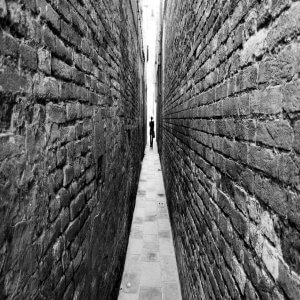What is the fear of closed spaces (Claustrophobia) and how can it be fixed?
The question of what is called the fear of closed spaces is among the topics that are wondered. Fear of confined spaces is common today. A person staying indoors may panic and fear in this situation. This condition has certain symptoms. People whose breathing accelerates can become stressed.
What Is The Fear Of Closed Spaces?
Most of the people live with some fear for various reasons. One of the fears we mentioned is the fear of closed space (claustrophobia). Fear of closed spaces is one of the most common situations today. Claustrophobia can occur over time as a fear brought from the past, or it can occur depending on the reaction to an event. Blaming oneself as a result of a mistake made as a child and the formation of claustrophobia with pressure, being locked in childhood, a sense of punishment, perfectionist personalities are the causes of claustrophobia.
What Are The Symptoms Of Claustrophobia?
- When the person enters a closed area, they may experience a lock in their hands and feet and have a panic attack.
- As soon as the person gets tired of being indoors, they will want to go out. If he doesn’t come out, he feels like he is drowning.
- When the person enters a closed area, he may notice that his breath is constricted, and after a while he cannot breathe.
- In the closed area, he may feel that he is on the walls, and as a result, he feels crying and leaving his environment.
At the beginning of the problems that individuals who have a fear of closed spaces complain the most; problem of getting on the elevator, sleeping in closed rooms, inability to stay in tight spaces, etc. has. For those who have these problems, entering the MRI machine or staying in a tunnel for a long time due to any health problem is a big problem because those who suffer from claustrophobia feel themselves in the coffin or under the ground.
The individual who has to undergo MRI for his health can only be treated by injecting medication. It is observed that caves, low-ceilinged houses, subway, crowded places can cause claustrophobic events. People who have this problem; They experience shortness of breath, dizziness, fear of death, and the further dimension of this reaches panic attack.
Why Does Claustrophobia Occur?
The phenomenon that reveals the fear of indoor spaces is that the person feels helpless and unprotected. The person thinks that he will never be able to leave the closed environment and that no one can help him. Research has also revealed that this psychological phenomenon has biological causes. It has been determined that the part of the human brain that directs emotions is smaller in individuals with fear of closed spaces.
It is also stated that in some families this occurs as a genetic problem. Surviving the danger of drowning from an early age, being stuck in one place, being locked in a dark place, falling into a pit, etc. Such problems may lead to the development of fear of closed space.
How is Claustrophobia Treated?
First of all, as in all psychological disorders, in claustrophobia, the patient should be made to believe in his illness and be aware of the problems he will experience. Afterwards, 2 types of treatment are commonly applied:
Medication
Drug therapy can be seen as the last step. If the patient has frequent panic attacks and cannot keep up with the daily routine of life because of these attacks, drug treatment should be started in a controlled manner. The high risks of drugs used for the treatment of psychological disorders should be taken into account and accordingly, it should be used under the supervision of a doctor.
Going On The Fear
This method can also be called habituation and should be applied only to people whose claustrophobia has not progressed, under the control of an expert. If the person is hesitant to take the elevator, first of all, he is allowed to accept it and practice it to overcome it.
The patient is given exercise-like tasks. For example, passing through a tunnel, staying for a while in a specified environment. The patient cannot perform these tasks at once or perform them for short periods of time, but over time it becomes fully capable. After that, if necessary, a second task is given; If the doctor thinks that the patient can complete the elevator ride, he / she allows the patient to get on the elevator under his own control without the need for a second task.

